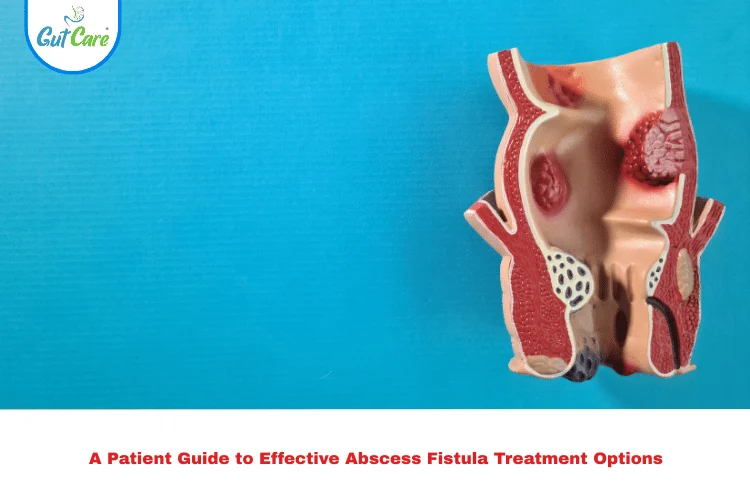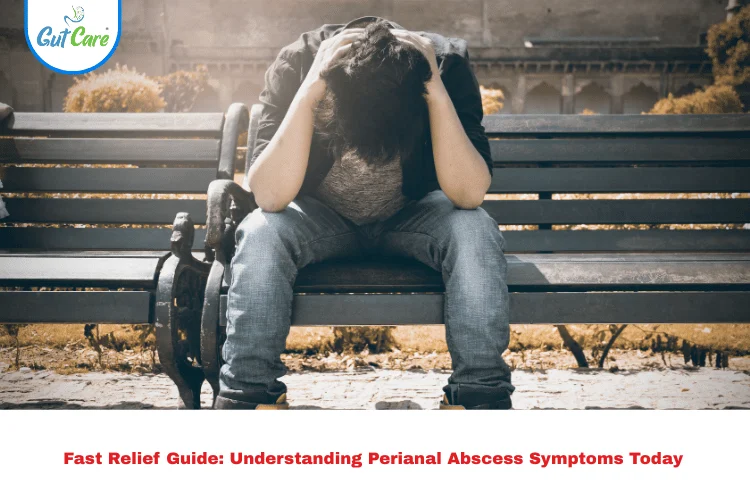When it comes to anorectal conditions, two terms often cause confusion: piles vs fistula. While both affect the anal region, they are very different in nature, symptoms, and treatment options. Many people misinterpret them, leading to delays in seeking the right medical help. At Gutcare Clinics in Bangalore, our expert colorectal surgeon, Dr. Yuvrajsingh Gehlot, emphasizes the importance of understanding the difference between piles and fistula to ensure timely treatment and recovery.
What Are Piles?
Piles, also known as hemorrhoids, are swollen and inflamed veins inside the rectum or around the anus. They can cause discomfort, itching, pain, and even bleeding during bowel movements.
Common Symptoms of Piles
- Pain or discomfort while sitting
- Itching or irritation near the anus
- Bright red blood in stool
- Swelling or a lump around the anus
Causes of Piles
- Chronic constipation or straining
- Sedentary lifestyle
- Low-fiber diet
- Pregnancy (increased pressure on veins)
- Prolonged sitting on the toilet
What Is a Fistula?
A fistula is an abnormal tunnel that forms between the anal canal and the skin near the anus. Unlike piles, a fistula usually develops due to an infection in the anal gland that leads to an abscess. When the abscess bursts or is inadequately treated, it can form a fistula.
Common Symptoms of Fistula
- Persistent pain around the anus
- Pus or foul-smelling discharge
- Skin irritation and swelling
- Recurrent abscess formation
- Fever (in severe cases of infection)
Causes of Fistula
- Untreated or recurrent anal abscess
- Crohn’s disease
- Tuberculosis (rare cause)
- Previous anorectal surgery
- Chronic infection
Piles vs Fistula: Key Differences
Although both conditions occur in the same region, the difference between piles and fistula is significant:
| Feature | Piles (Hemorrhoids) | Fistula |
| Nature | Swollen blood vessels | Abnormal tunnel/tract |
| Cause | Constipation, straining, poor lifestyle | Infection, abscess |
| Symptoms | Bleeding, itching, swelling | Pain, pus, discharge |
| Treatment | Lifestyle changes, medications, minimally invasive surgery | Surgery is usually required |
| Severity | Often manageable early | Usually requires surgical correction |
Treatment Options: Piles vs Fistula
Treatment for Piles
Mild to moderate cases of piles can often be managed with:
- High-fiber diet and hydration
- Regular exercise
- Sitz baths to relieve discomfort
- Medications to reduce swelling
- Minimally invasive procedures such as laser surgery
A hemorrhoid specialist can determine whether surgical treatment is needed.
Treatment for Fistula
Unlike piles, fistulas rarely heal without medical intervention. Treatment usually involves surgery to close the abnormal tract and prevent recurrence. Options include:
- Fistulotomy (cutting open the tract)
- Seton placement (a surgical thread to help healing)
- Laser surgery for fistula
- Advanced flap procedures for complex cases
Consulting an experienced colorectal surgeon like Dr. Yuvrajsingh Gehlot at Gutcare Clinics ensures the right treatment with minimal risk of recurrence.
Why Professional Consultation Matters
Both piles and fistula can severely impact daily life if ignored. While home remedies and lifestyle changes may provide temporary relief for piles, fistula usually requires expert medical care. Self-treatment often delays proper healing and worsens the condition.
At Gutcare Clinics, Bangalore, patients receive comprehensive care from diagnosis to treatment, ensuring long-term relief and recovery.
Summary of Remedies
- For Piles: Dietary changes, exercise, sitz baths, medications, or minimally invasive procedures.
- For Fistula: Surgical treatment is the only effective option.
- For Both: Early consultation with a colorectal surgeon prevents complications.
If you’re unsure whether you’re suffering from piles or fistula, don’t delay. Seek professional advice from a trusted hemorrhoid specialist or colorectal surgeon.
FAQs On Piles vs Fistula
1. What is the main difference between piles and fistula?
The key difference between piles and fistula is that piles are swollen blood vessels in the rectum or anus, while fistula is an abnormal tunnel caused by infection.
2. Can piles turn into fistula?
No. Piles and fistula are separate conditions. Piles are due to swollen veins, while fistula develops from infection and abscess formation.
3. Who is the right doctor to treat piles and fistula?
A colorectal surgeon or a hemorrhoid specialist is best suited to treat both piles and fistula effectively.
4. How can I get piles and fistula treatment in Bangalore?
You can consult Dr. Yuvrajsingh Gehlot at Gutcare Clinics, Bangalore, where advanced laser treatments for piles and fistula are available.
5. Are home remedies effective for piles and fistula?
Home remedies may relieve mild piles but are not effective for fistula. For fistula, surgical treatment by a colorectal surgeon is essential.




